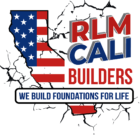The structural integrity of a building can be compromised by plumbing leaks.
What Kinds of Things Can Cause Problems with Plumbing?
Sinks that leak continuously and floors that are always damp could be signs of a problem with the plumbing. It is possible that cleaning up and fixing broken pipes will take a significant amount of time. The majority of homeowners incorrectly believe that a small leak now and then is not a significant issue.
Unfortunately, this is not the case in any way. The presence of persistent leaks in the plumbing system is frequently indicative of a more serious issue that is concealed beneath the surface. What kinds of problems can arise as a result of a plumbing system that is leaking? What are the fundamental reasons behind plumbing problems?
Problematic Signs One Ought to Watch Out For
The repairs for plumbing leaks are frequently misunderstood as being straightforward. If, after applying the initial patch, you are still experiencing issues, the source of the problem may lie elsewhere. If you look for particular warning signs, you might be able to figure out where the leak is coming from and how to fix it.
Leaks It is generally accepted that leaks are an indicator of a more significant issue. Your home’s plumbing system is designed to bring clean water into your home and carry waste away from it, all while preventing that water from leaking out of the home in any other way.
Do not disregard the fact that there is water pooling on the floor of your bathroom or basement if you notice it leaking there. Attempting to fix the issue by placing a bucket below it and crossing one’s fingers is also not going to solve the issue. If you notice a leak in your plumbing system, you need to investigate the cause as soon as possible so that you can prevent a sewage backup from flooding your home.
The Smell of Musty
If you smell a foul odor coming from your crawl space or basement, there is a good chance that there is standing water or sewage in those areas. If you smell the odor on your first floor, it is likely coming from your crawl space. This water could have gotten into your crawl space, foundation, or basement as a result of a pipe that was installed in the wrong location.
In these areas, areas of standing water can lead to a variety of different issues. In addition to the offensive smell, you might also have to deal with the following issues:
Mildew or mold growth Unwanted insects are attracted to damp areas because of the food source they provide.
-Support beams and floor joists that are buckling and putting your home’s structural integrity in jeopardy
Unfortunately, the majority of homes do not have crawl spaces or foundations that can be explored. Because of the crawl space’s limited size, it is not possible to simply remove the water using buckets, as one would do in the case of a flooded basement.
The stench, on the other hand, gets significantly worse the longer the water is left sitting in this area. It is undeniably a warning sign that even if you wanted to ignore it, you simply cannot do so at this point. Because of this, you should get in touch with a professional as soon as you realize there is a problem.
How to Fix Leaks in Your Plumbing System
It is possible for you to realign your pipes on your own, but unless you are a certified expert, this is not something that is recommended. There are a lot of homeowners who have never even looked in the cellar or the crawl space. You run the risk of accidentally destroying the other systems that are confined within this small space because of your actions.
If it turns out that the primary issue is located within your crawl space or foundation, repairing it will be an even more difficult task. The average homeowner will not have access to the necessary equipment and lack the necessary knowledge to be able to solve these issues on their own.
Do you require repair work on your foundation or Foundation Inspection Bell? Dial (800) 824-6699 to get in touch with the RLM Retrofit Foundation.
How to Hire a Qualified Foundation Inspector and Why You Should Bell
To what end does soil play a role Bell










